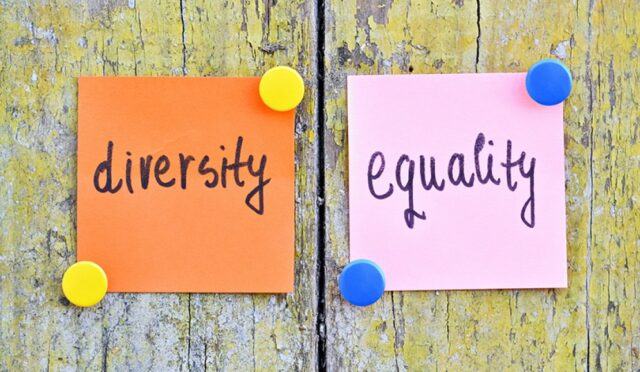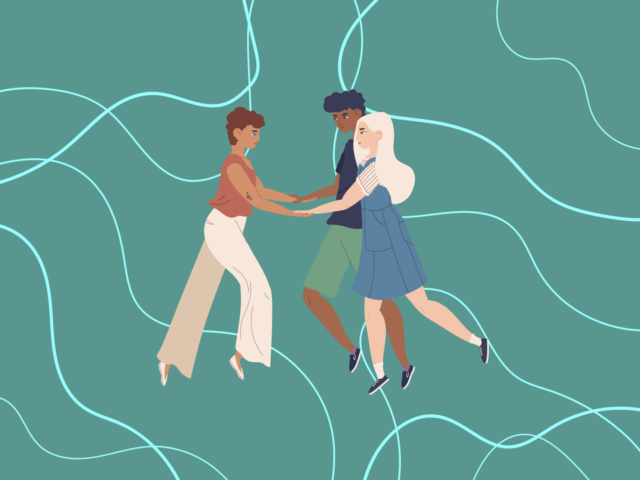
The hotwife lifestyle is a type of consensual non-monogamy where a married woman engages in sexual relationships with other individuals with her husband’s knowledge and consent. This arrangement can be highly fulfilling and empowering for both partners, allowing them to explore their desires and strengthen their relationship. However, it is often misunderstood and stigmatized by society, leading to discrimination and negative attitudes towards those who practice it.
In this blog post, we will explore the misconceptions and stereotypes associated with hotwifing and the impact of stigma and discrimination on the mental health and well-being of hotwives and their partners. We will also discuss the importance of creating a safe and supportive community for hotwives and advocating for their rights to live their lives free from discrimination.
Understanding Societal Misconceptions and Stereotypes

The hotwife lifestyle is often portrayed in media and popular culture as being taboo, immoral, and destructive to marriages. This portrayal is far from the truth and based on a lack of understanding of what hotwifing actually entails. Some of the common misconceptions and stereotypes associated with hotwifing include:
- It is a form of cheating: One of the most prevalent misconceptions is that hotwifing is a form of cheating. However, in a hotwife relationship, both partners are aware of and consent to the arrangement, making it a consensual non-monogamous relationship.
- It is solely for the pleasure of men: Another misconception is that hotwifing is solely for the pleasure of men, and women are forced into it. This is far from the truth as hotwifing is a mutual agreement between partners, and women often have agency in choosing their sexual partners.
- It is a sign of a troubled marriage: Another misconception is that hotwifing is a sign of a troubled marriage. However, hotwifing can be a way for couples to strengthen their relationship by exploring their sexuality together and building trust.
Exploring the Impact of Stigma and Discrimination
The stigma and discrimination faced by hotwives and their partners can have a significant impact on their mental health and well-being. They may face negative attitudes and judgment from friends and family, which can lead to feelings of isolation and shame. The societal pressure to conform to traditional monogamous relationships can also make it challenging for hotwives to express themselves and their desires openly. Additionally, hotwives may face discrimination in the workplace or in public settings, leading to further marginalization.
Addressing Negative Attitudes and Judgment

It is essential to address negative attitudes and judgment towards hotwifing and promote understanding and acceptance of alternative relationship dynamics. Friends and family members may be skeptical or judgmental at first, but open and honest communication can help dispel misconceptions and educate others about the lifestyle. It is also important to emphasize that hotwifing is a consensual choice made by both partners, and it is not a reflection of a troubled marriage or lack of love and commitment.
The Impact of Stigma and Discrimination on Mental Health and Well-Being
The stigma and discrimination faced by hotwives and their partners can take a toll on their mental health and well-being. They may experience anxiety, depression, and low self-esteem, leading to feelings of shame and self-doubt. It is essential to provide support and resources to hotwives and their partners to help them cope with these challenges. Creating a safe and supportive community where individuals can share their experiences and seek advice and guidance can be helpful in combating the negative effects of stigma and discrimination.
Creating a Safe and Supportive Community

Creating a safe and supportive community is crucial in addressing stigma and discrimination faced by hotwives and their partners. This community can offer a space for individuals to share their experiences, provide emotional support, and educate others about their lifestyle. Additionally, it can provide access to resources such as therapists, support groups, and legal advice. Online forums and social media groups can be helpful in creating a virtual community, while in-person meetups and events can offer opportunities for individuals to connect face-to-face. By creating a safe and supportive community, hotwives and their partners can feel empowered and supported in their lifestyle choices.
Raising Awareness and Promoting Acceptance
Raising awareness about the hotwife lifestyle and promoting acceptance and understanding is crucial in combating stigma and discrimination. Educating the public about the consensual nature of hotwifing and dispelling misconceptions and stereotypes can help to promote acceptance and inclusivity. It is also important to advocate for the rights of hotwives and their partners to live their lives free from discrimination. This includes promoting laws and policies that protect the rights of individuals in consensual non-monogamous relationships and challenging discriminatory practices in the workplace and other public settings.
Advocating for Diversity and Inclusivity

Promoting diversity and inclusivity in the discussion of alternative relationship dynamics is important in creating a more accepting and inclusive society. This includes recognizing and celebrating the diversity of human sexuality and relationships, and challenging the societal norms and expectations that limit our freedom to explore and express ourselves. By advocating for diversity and inclusivity, we can help to create a more accepting and supportive society for all individuals, regardless of their lifestyle choices.
Celebrating Complexity and Challenging Norms
Finally, it is important to celebrate the complexity and diversity of human sexuality and relationships and challenge the societal norms and expectations that limit our freedom to explore and express ourselves. By challenging traditional monogamous relationship models, we can create space for alternative lifestyles such as hotwifing to exist and thrive. Celebrating the complexity of human sexuality and relationships can also help to promote empathy and understanding towards those who practice alternative lifestyles.
Conclusion

In conclusion, the hotwife lifestyle is a consensual non-monogamous relationship that can be highly fulfilling and empowering for both partners. However, it is often misunderstood and stigmatized by society, leading to discrimination and negative attitudes towards those who practice it. By understanding the misconceptions and stereotypes associated with hotwifing and the impact of stigma and discrimination on the mental health and well-being of hotwives and their partners, we can work towards promoting acceptance and inclusivity.
By creating a safe and supportive community, raising awareness, advocating for diversity and inclusivity, and celebrating complexity, we can help to create a more accepting and supportive society for all individuals, regardless of their lifestyle choices.









